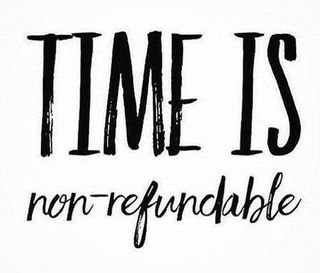Mating
Practicing Empathy in the Dating World: A Long-Lost Skill
Kindness goes a long way, especially when it comes time to dating new people.
Posted October 18, 2017

Empathy is the ability to understand and share the feelings of another individual. As humans, we often put our own feelings, emotions, thoughts, and physical needs first, because our instinctual practices emulate “survival of the fittest. This is not true for everyone: Many people dedicate their lives to helping others; many mothers notoriously put their children’s needs before their own.
However, in the dating world, a lack of empathy is often quite apparent, especially as online dating has emerged as a buffet for eligible bachelors and bachelorettes. Do you ever become frustrated when someone you meet never bothers to text or call you back? What about when you have what seemed like a great date, but the other person abruptly tells you that you're not "right" for them? Can an individual truly get to know someone after only conversing for an hour or two? In a fast-paced world, individuals may not take the time to fully engage with others on multiple levels over a longer period of time.
Chemistry and physical attraction are important, of course, but when we judge a person's character so quickly and decide whether or not we will ever speak to them again, empathy can be forgotten. Think about how long it takes to form a strong friendship: I know that when I first met a couple of my dearest friends, I did not even like them. Imagine if we looked at dating as a way to simply get to know a person for who they are? Even if we are in a rush to move on, we still owe each other respect.
Rejection
We have always "rejected" people, ever since we were children. We rejected kids who did not want to play with us on the monkey bars. Maybe we even rejected offers of dates to high school dances or individuals we just did not mesh with. As adults, we may "reject" coworkers with whom we do not share common ground, or individuals within our social circle. We do not have to like or befriend everyone who crosses our paths, but we ought to be compassionate.
Rejection carries a negative connotation, but we can still do it in a respectful way. Maintaining courteous small talk without diving into a full-fledged friendship and a sharing of deep intimacy is one way to show rejection to those we do not want in our lives. It does not have to be fully black-and-white. We're not obligated never to speak to someone again simply because we do not want to be best friends or romantic partners. If you decline a co-worker's invitation to drinks with a simple "no, thank you," you can still share a friendly “hello” at the coffee machine the next morning. However, so many people are afraid of the risk of confrontation in saying "no" that they blatantly ignore invitations, or lie about an excuse, leading inevitably to awkwardness and hurt feelings.
In the dating world, there are many terms to describe the behavior of individuals who fail to show empathy for others in the face of rejection:

The “interim state”
Many people will keep others in their lives until they find something "better." But keeping someone at arm’s length in a state of stable ambiguity can be harmful. Many people allow this to happen because they are afraid of being alone, and may realize that while a person may be okay to be with for the time being, they are not someone they are interested in holding onto long-term. Yet we, as humans, must be happy and comfortable alone before we choose to be with someone else. An interminable interim status means leading someone on and eventually hurting him or her. It also wastes that person's time — something one can never get back. Instead of leaving someone in limbo, be honest and forthcoming about your feelings. Verbalize them in an empathetic way and, as the saying goes, “let them down gently.”
This is the practice of ending a relationship with someone by suddenly, and without explanation, ceasing all communication — effectively vanishing from their lives, often without warning. When a person refuses to return your texts or calls, and you never hear from them again, that's ghosting. We have always rejected each other, but with new forms of media, the frequency of communication that can precede the complete cut-off of communication can be jarring. Constantly texting a person before finally meeting for a first date, or even going on second, third, and further dates before being completely ignored, is, sadly, an increasingly common practice.

As adults, we need to take responsibility for our thoughts and feelings, and we owe it to ourselves and to others to be honest and show empathy toward everyone we come into contact with.
These types of behaviors destroy trust, leave people feeling rejected and sad, and prove one's selfishness. We can all stand to conduct our love lives with a little more empathy.


